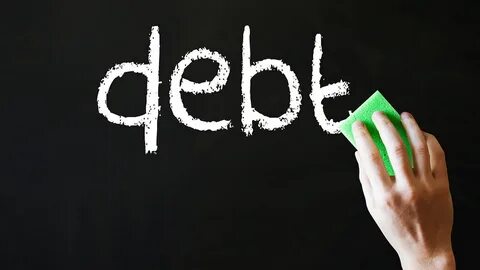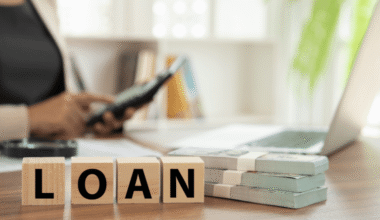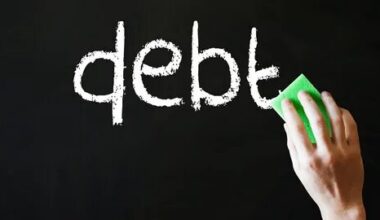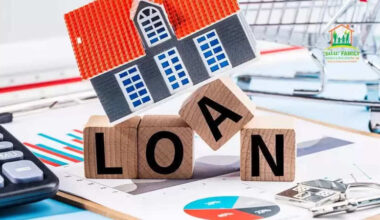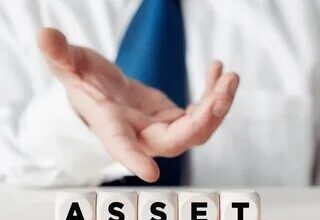
Paying off debt without stress may sound like a dream, but with the right plan and mindset, it’s absolutely achievable. Debt can weigh heavily on your mind and finances, but it doesn’t have to. In this ultimate guide, we’ll walk through proven strategies, practical steps, and emotional tips to help you pay off debt without stress and reclaim your financial freedom peacefully.
Introduction to Paying Off Debt Without Stress
When you hear “debt,” what’s the first feeling that comes to mind? Anxiety? Overwhelm? It’s common to feel pressured when debts pile up, but there is a better way—one where stress doesn’t dictate your money decisions.
Paying off debt without stress means creating a realistic plan that fits your lifestyle, keeps your mental health intact, and steadily moves you toward freedom. The goal isn’t just to eliminate debt but to do so in a way that supports your well-being and long-term financial health.
Understanding Debt and Its Impact on Your Life
Debt isn’t just about numbers—it affects your whole life.
Types of Debt: Good Debt vs. Bad Debt
Not all debts are created equal. “Good debt” is often an investment in your future, like a mortgage or student loans that increase your earning potential. “Bad debt” usually refers to high-interest credit cards or payday loans that drain your finances without adding value.
Understanding which debts you carry can help you prioritize and make smarter repayment choices.
The Psychological Toll of Debt Stress
Debt stress can cause sleepless nights, anxiety, and even physical health issues like headaches and high blood pressure. Studies show that money worries are among the top causes of stress globally.
Recognizing the emotional weight of debt is the first step in learning how to pay off debt without stress.
How Debt Affects Your Financial Freedom
Debt limits your options. It restricts your ability to save, invest, or take career risks. Paying off debt frees up cash flow, allowing you to pursue goals like buying a home, traveling, or starting a business.
Paying Off Debt Without Stress – Why It Matters
Why emphasize paying off debt without stress?
Because stress can sabotage even the best financial plans. High stress often leads to poor money choices like overspending or ignoring bills. By focusing on stress-free repayment, you improve your chances of success and maintain peace of mind.
Stress-free debt repayment isn’t about quick fixes or extreme austerity—it’s about balance, realistic goals, and self-compassion.
Step 1 – Assess Your Debt Situation Clearly
Before you can conquer debt, you must know exactly what you owe.
How to List All Debts Accurately
Gather every statement and write down:
- Creditor name
- Total amount owed
- Interest rate
- Minimum monthly payment
- Due dates
Include credit cards, personal loans, student loans, medical bills, and any informal debts.
Using Tools and Apps to Track Your Debt
Tools like Mint, Personal Capital, and You Need A Budget (YNAB) can consolidate your debts and provide a real-time snapshot. This clarity reduces stress by eliminating surprises.
Step 2 – Create a Realistic Budget to Support Debt Repayment
Budgeting is the cornerstone of paying off debt without stress.
Budgeting Methods That Work
Popular methods include:
- Zero-based budgeting: Assign every dollar a purpose until your income minus expenses equals zero.
- 50/30/20 rule: Allocate 50% to needs, 30% to wants, and 20% to savings/debt.
- Envelope system: Use cash envelopes for spending categories to control expenses.
Pick one that matches your personality and lifestyle to ensure sustainability.
Allocating Money Towards Debt Without Sacrificing Essentials
Avoid depriving yourself completely—balance is key. Budget for essentials like groceries and utilities first. Then, allocate as much as comfortably possible toward debt without causing financial hardship.
Step 3 – Prioritize Your Debts Strategically
Not all debts are equal in repayment priority. Choosing the right payoff method helps reduce stress and keep motivation high.
Debt Snowball Method Explained
Pay the smallest debt first while making minimum payments on others. Once the smallest is paid off, roll that payment amount into the next smallest debt. This method provides quick wins that boost confidence.
Debt Avalanche Method Explained
Pay debts with the highest interest rates first, minimizing the total interest paid. This method is mathematically faster and cheaper but requires discipline and patience.
Which Method Suits Your Personality and Situation?
If motivation is your struggle, debt snowball may reduce stress by showing faster results. If you’re detail-oriented and want to save money, avalanche is likely better.
READ MORE: The Ultimate Guide to Achieving Financial Freedom: A Step-by-Step Roadmap
Step 4 – Negotiate Lower Interest Rates and Better Terms
Believe it or not, creditors often want to work with you.
How to Approach Creditors Professionally
Call your creditor, explain your situation, and ask if they can lower your interest rate or offer hardship programs. Use a calm, polite tone and have your current financial info handy.
The Benefits of Refinancing and Consolidation
Consolidation loans or balance transfers with low or 0% introductory rates can simplify payments and reduce interest. This often lowers monthly payments and makes your debt easier to manage.
Step 5 – Increase Your Income to Accelerate Debt Payoff
While cutting expenses is important, increasing your income adds fuel to your repayment plan.
Side Hustles and Freelance Opportunities
Explore gigs like ridesharing, freelance writing, graphic design, tutoring, or selling crafts online. The internet offers countless opportunities suited for various skills.
Passive Income Ideas
Consider investing time in creating digital products, affiliate marketing, or rental income for long-term earning without constant active effort.
Step 6 – Automate Payments to Avoid Missed Deadlines
Missing payments causes fees and stress.
Benefits of Automation for Stress Reduction
Automatic payments ensure you never miss due dates. They create consistency and help improve credit scores.
Tools and Apps for Automatic Payments
Most banks and creditors offer autopay options. Apps like Prism can centralize bill payments.
Step 7 – Develop Healthy Financial Habits to Prevent Future Debt
Long-term success depends on habits.
Importance of Emergency Funds
A cushion of 3–6 months’ expenses prevents new debt when emergencies arise.
Smart Spending Habits
Track spending, avoid impulse purchases, and ask yourself, “Do I really need this?” before buying.
Step 8 – Use Emotional and Mental Health Strategies to Manage Stress
Financial challenges are emotional journeys.
Mindfulness and Financial Anxiety
Mindfulness practices reduce anxiety and improve focus. Apps like Headspace and Calm offer guided meditations.
Seeking Support From Friends, Family, or Professionals
Join support groups, talk openly about money, or seek help from financial coaches or therapists.

Common Mistakes to Avoid When Paying Off Debt Without Stress
- Ignoring small debts: They add up and cause stress.
- Overcommitting financially: Avoid burnout by setting realistic payment goals.
- Neglecting self-care: Stress impacts your overall health and decision-making.
Success Stories: Real-Life Examples of Paying Off Debt Without Stress
- Jane’s Journey: Paid off $20,000 in credit card debt in 18 months by combining side hustles and debt snowball. She credits her stress-free approach for sustained motivation.
- Mark’s Method: Used the debt avalanche method alongside refinancing, cutting his interest rates in half, and cleared $50,000 in 3 years without sacrificing his lifestyle.
Tools and Resources for Paying Off Debt Without Stress
- Budgeting Apps: Mint, YNAB, EveryDollar
- Debt Calculators: NerdWallet Debt Payoff Calculator
- Financial Education: Dave Ramsey’s website , The Balance
Conclusion: Your Path to Stress-Free Debt Freedom Starts Today
You don’t have to be overwhelmed by debt. By embracing a strategic, compassionate approach, you can pay off debt without stress and reclaim your financial freedom. Remember, progress—not perfection—is what matters. Start with clear knowledge of your debts, create a budget that works for you, prioritize wisely, seek help when needed, and take care of your mental health along the way. Your debt-free, stress-free future is within reach.
FAQs
1. Can paying off debt without stress really be achievable?
Absolutely! With the right plan, mindset, and support, you can reduce financial anxiety and pay off your debts at a sustainable pace.
2. Which debt payoff method is the most stress-free?
It depends on you. Debt snowball offers quick wins for motivation, while debt avalanche saves money long term. Choose the one that fits your personality.
3. How can I stay motivated during my debt payoff journey?
Celebrate small wins, track progress visually, and remind yourself of your goals and the freedom ahead.
4. Are debt consolidation loans safe?
Yes, if chosen carefully. They can lower interest rates and simplify payments, but always compare terms and fees.
5. What should I do if I can’t make my debt payments?
Contact creditors promptly to discuss hardship options and consider credit counseling for professionals
